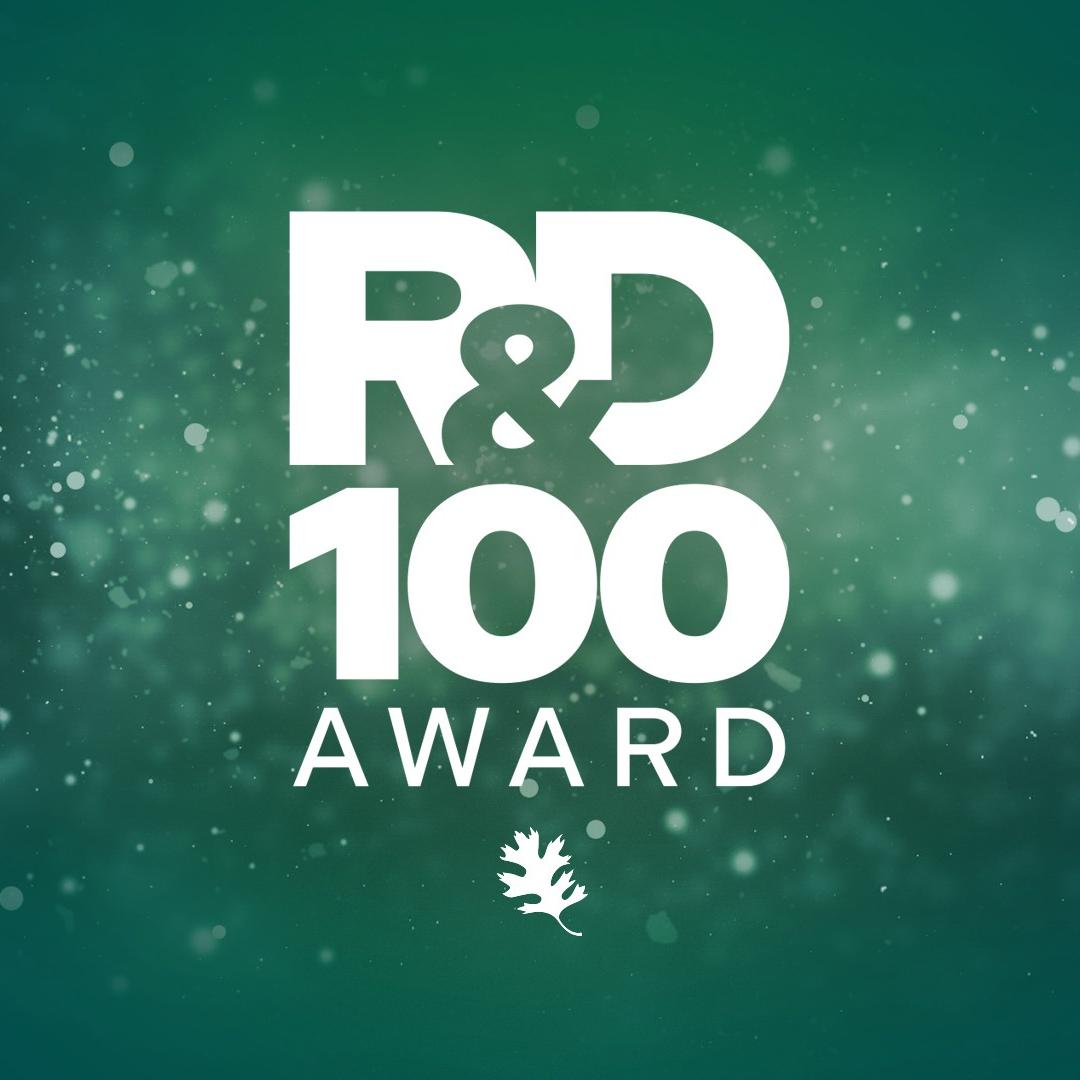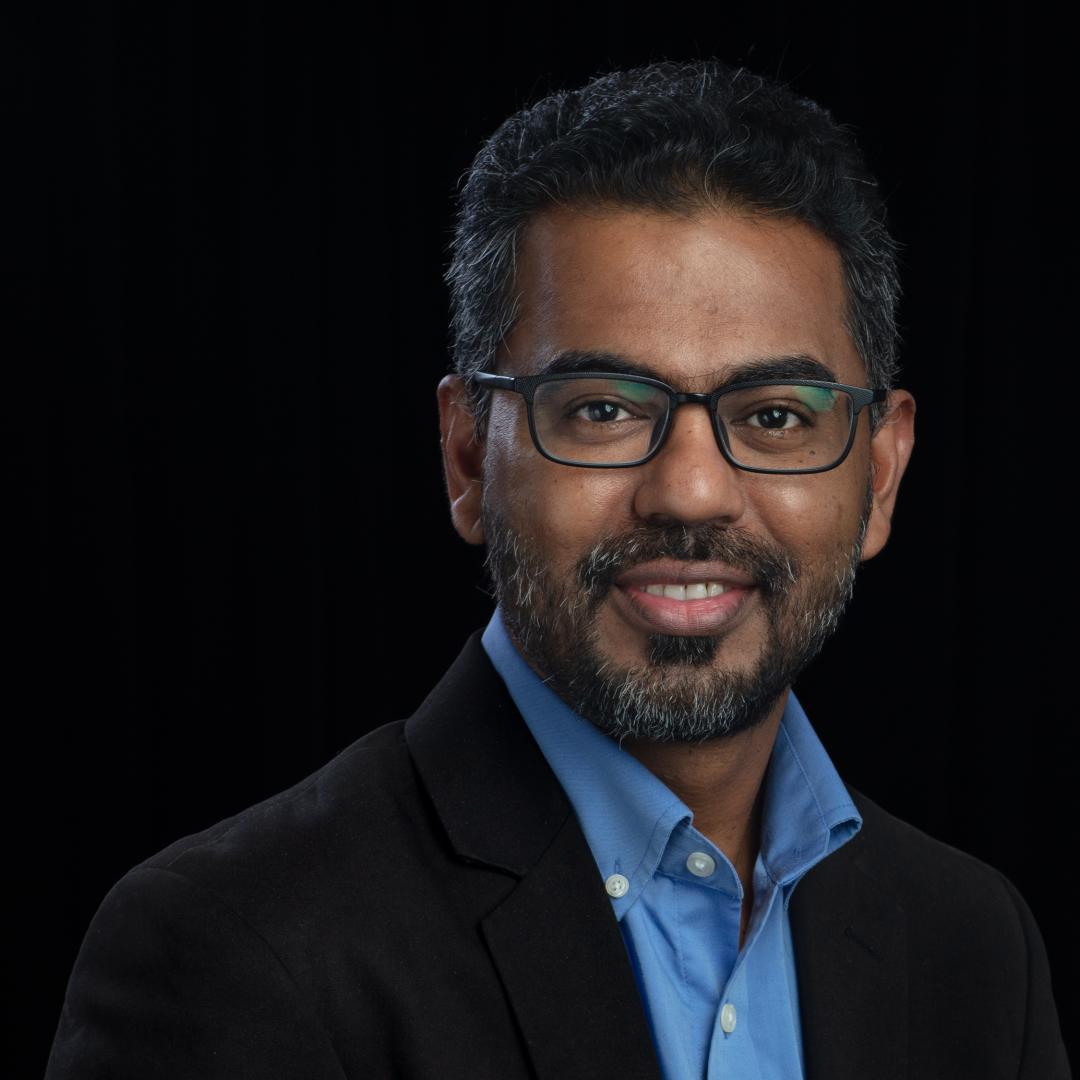
Filter News
Area of Research
- (-) Advanced Manufacturing (1)
- (-) Biology and Environment (30)
- (-) Materials (46)
- (-) Supercomputing (37)
- Biology and Soft Matter (1)
- Clean Energy (80)
- Computer Science (5)
- Electricity and Smart Grid (3)
- Functional Materials for Energy (1)
- Fusion and Fission (9)
- Fusion Energy (7)
- Materials for Computing (7)
- National Security (10)
- Neutron Science (12)
- Nuclear Science and Technology (12)
- Nuclear Systems Modeling, Simulation and Validation (1)
- Quantum information Science (9)
- Sensors and Controls (1)
- Transportation Systems (1)
News Topics
- (-) Advanced Reactors (5)
- (-) Decarbonization (27)
- (-) Grid (11)
- (-) Microscopy (35)
- (-) Quantum Science (32)
- 3-D Printing/Advanced Manufacturing (46)
- Artificial Intelligence (42)
- Big Data (25)
- Bioenergy (53)
- Biology (75)
- Biomedical (32)
- Biotechnology (14)
- Buildings (8)
- Chemical Sciences (35)
- Clean Water (14)
- Climate Change (53)
- Composites (14)
- Computer Science (107)
- Coronavirus (23)
- Critical Materials (15)
- Cybersecurity (9)
- Energy Storage (38)
- Environment (111)
- Exascale Computing (24)
- Frontier (28)
- Fusion (9)
- High-Performance Computing (53)
- Hydropower (8)
- Irradiation (1)
- Isotopes (13)
- ITER (1)
- Machine Learning (19)
- Materials (88)
- Materials Science (90)
- Mathematics (3)
- Mercury (7)
- Molten Salt (3)
- Nanotechnology (44)
- National Security (9)
- Net Zero (4)
- Neutron Science (47)
- Nuclear Energy (20)
- Partnerships (12)
- Physics (35)
- Polymers (19)
- Quantum Computing (20)
- Renewable Energy (2)
- Security (6)
- Simulation (23)
- Software (1)
- Space Exploration (6)
- Summit (46)
- Sustainable Energy (46)
- Transformational Challenge Reactor (4)
- Transportation (20)
Media Contacts
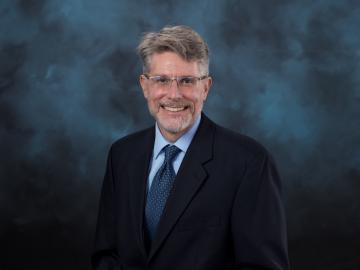
ORNL appointed Peter Thornton as director of its Climate Change Science Institute, or CCSI, effective November 1, 2022.
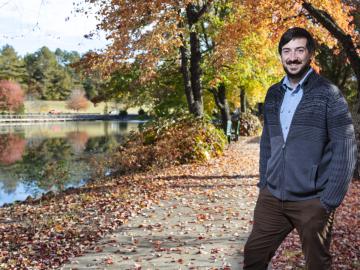
Matthew Craig grew up eagerly exploring the forest patches and knee-high waterfalls just beyond his backyard in central Illinois’ corn belt. Today, that natural curiosity and the expertise he’s cultivated in biogeochemistry and ecology are focused on how carbon cycles in and out of soils, a process that can have tremendous impact on the Earth’s climate.
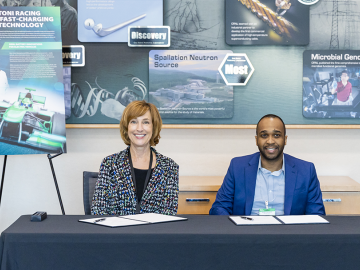
Marc-Antoni Racing has licensed a collection of patented energy storage technologies developed at ORNL. The technologies focus on components that enable fast-charging, energy-dense batteries for electric and hybrid vehicles and grid storage.
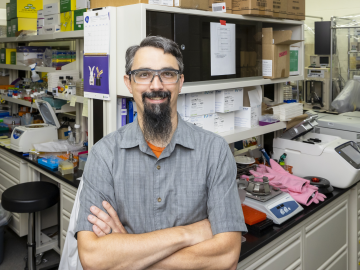
Scientists working on a solution for plastic waste have developed a two-step chemical and biological process to break down and upcycle mixed plastics into valuable bioproducts.
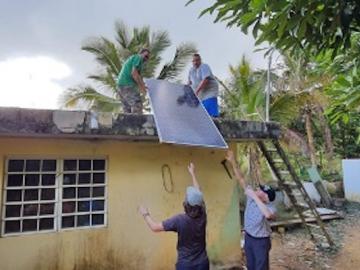
When Hurricane Maria battered Puerto Rico in 2017, winds snapped trees and destroyed homes, while heavy rains transformed streets into rivers. But after the storm passed, the human toll continued to grow as residents struggled without electricity for months. Five years later, power outages remain long and frequent.
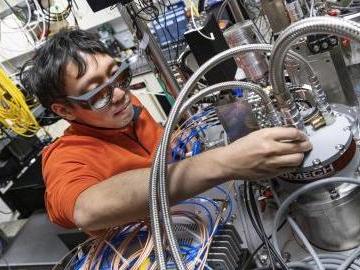
Five National Quantum Information Science Research Centers are leveraging the behavior of nature at the smallest scales to develop technologies for science’s most complex problems.
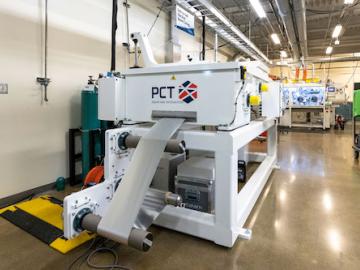
Researchers at the Department of Energy’s Oak Ridge National Laboratory and their technologies have received seven 2022 R&D 100 Awards, plus special recognition for a battery-related green technology product.
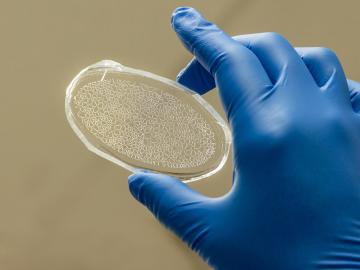
Scientists at ORNL have created a miniaturized environment to study the ecosystem around poplar tree roots for insights into plant health and soil carbon sequestration.
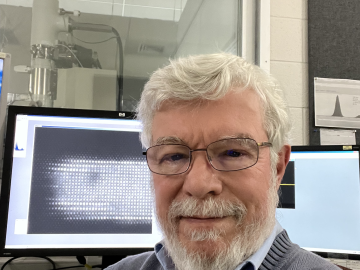
Larry Allard, a distinguished research staff member at Oak Ridge National Laboratory, has been named a Fellow of the Microanalysis Society.
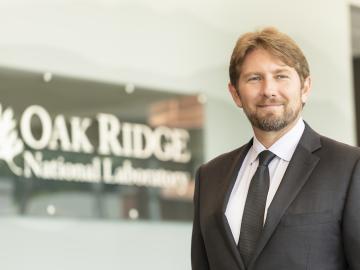
Travis Humble has been named director of the Quantum Science Center headquartered at ORNL. The QSC is a multi-institutional partnership that spans industry, academia and government institutions and is tasked with uncovering the full potential of quantum materials, sensors and algorithms.


